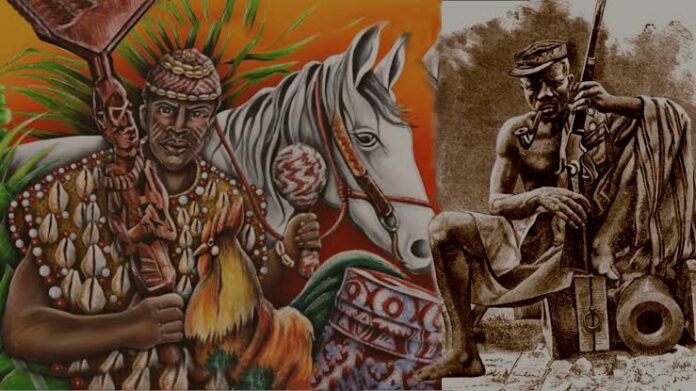The Oyo Empire, nestled in the heart of present-day Nigeria, stands as a testament to the rich tapestry of African history and civilization. Renowned for its military prowess, sophisticated governance system, and cultural vibrancy, the Oyo Empire exerted a profound influence that rippled across West Africa.
In this comprehensive SEO article, we delve deep into the multifaceted legacy of the Oyo Empire, exploring its governance structure, economic prosperity, cultural exchanges, and enduring impact on surrounding regions.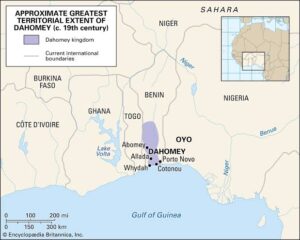
Historical Background:
Established in the 15th century, the Oyo Empire emerged as a dominant force in the West African savanna, encompassing vast territories and commanding allegiance from neighboring states. Founded by the Yoruba people, the empire thrived on a foundation of military strength, centralized authority, and strategic diplomacy.
Under the leadership of powerful rulers known as Alaafins, the Oyo Empire reached its zenith in the 17th and 18th centuries, controlling key trade routes and fostering a flourishing economy fueled by agriculture, trade, and craftsmanship.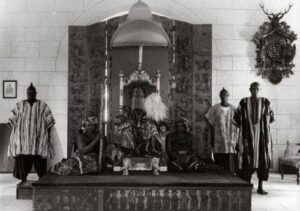
Governance Structure:
Central to the success of the Oyo Empire was its elaborate system of governance, characterized by hierarchical authority, administrative efficiency, and checks and balances. At the apex of the political hierarchy stood the Alaafin, revered as the divine ruler and supreme authority.
Below the Alaafin were appointed officials known as the Oyomesi, who served as councilors and advisors, ensuring the smooth functioning of the empire. Additionally, provincial governors, chiefs, and local administrators maintained order and upheld the rule of law within their respective domains, contributing to the empire’s stability and cohesion.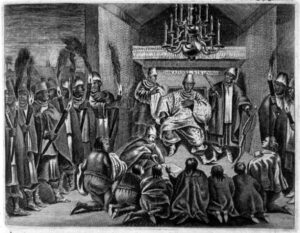
Economic Prosperity:
The Oyo Empire thrived as a vibrant economic hub, attracting merchants, traders, and artisans from far and wide. Blessed with fertile lands and a favorable climate, agriculture formed the backbone of the empire’s economy, with staple crops such as yams, millet, and cassava cultivated in abundance.
Trade flourished along well-established routes, connecting Oyo with distant markets and facilitating the exchange of goods such as textiles, ivory, and gold. The empire’s prosperity was further augmented by skilled craftsmen renowned for their intricate metalwork, weaving, and pottery, which garnered admiration and demand beyond its borders.
 Cultural Exchanges:
Cultural Exchanges:
Beyond its military and economic might, the Oyo Empire played a pivotal role in fostering cultural exchanges and knowledge dissemination across West Africa. As a melting pot of diverse ethnic groups and traditions, Oyo served as a cultural epicenter where languages, customs, and beliefs intermingled and evolved.
Artistic expressions flourished, manifesting in vibrant sculptures, intricate beadwork, and captivating oral narratives that celebrated the empire’s heritage and collective identity. Moreover, the spread of Islam and Christianity during the empire’s reign contributed to the fusion of indigenous beliefs with foreign religions, shaping the spiritual landscape of the region for centuries to come.
Also, read; South Africa Marks 30 Years of Freedom Amidst Inequality and Tense Election Ahead
Enduring Impact:
Although the Oyo Empire eventually declined in the 19th century due to internal strife and external pressures, its legacy endures as a cornerstone of West African history and identity.
The empire’s governance model influenced subsequent states and kingdoms in the region, laying the groundwork for centralized authority and administrative systems. Moreover, Oyo’s cultural and economic contributions reverberate through time, shaping the cultural landscape and economic dynamics of modern-day Nigeria and neighboring countries.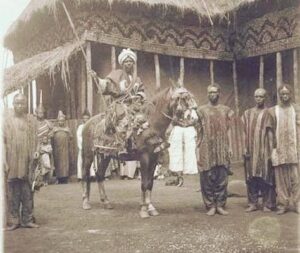
Conclusion:
The Oyo Empire stands as a testament to the resilience, ingenuity, and cultural richness of West Africa’s historical tapestry.
From its humble origins to its zenith as a regional powerhouse, the empire’s influence transcended borders and generations, leaving an indelible mark on the collective memory of the continent.
As we unravel the multifaceted legacy of the Oyo Empire, we gain deeper insights into the intricate web of connections that define West Africa’s past, present, and future.

